Swirl, sniff and repeat, all without venturing too far or even needing a car.
No longer do budding oenophiles visiting a city need to travel to far-flung vineyards to get a taste of the winemaking process.
Tour, taste and more at these six spots that bring wine country to you.
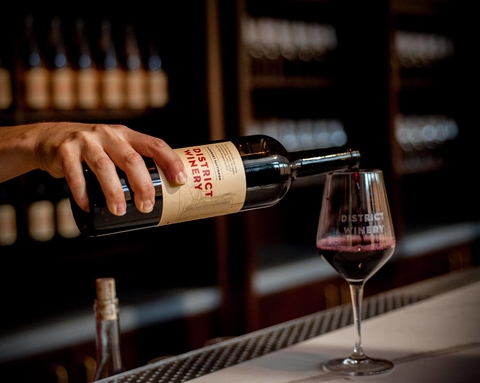
District Winery, Washington, D.C.
This sleek space in the Navy Yards section of town encompasses an area for fermentation and aging, a tasting room, an event space overlooking the Anacostia River, and modern global-focused restaurant Ana, where you can order beignets with Maryland crab and pastrami-spiced monkfish. Grapes are sourced from Washington, California, New York and Virginia, and wines are made by head winemaker Conor McCormack, who used to work at Brooklyn Winery (owned by the same parent company).
Tour/Taste: Select from an ever-changing Seasonal ($14), Winemaker’s Choice ($14) or Premium Custom Tasting ($16). Public tours are given periodically throughout the week and cost $35, which includes a wine tasting.
Wines to look for: Crisp, mineral-driven, apple-tinged 2015 Unoaked Chardonnay from New York’s Finger Lakes; a 2015 Malvasia Bianca orange wine (also from the Finger Lakes) with notes of strawberry lemonade and green tea; and a bold and grippy 2013 Sonoma Valley Cabernet Sauvignon.
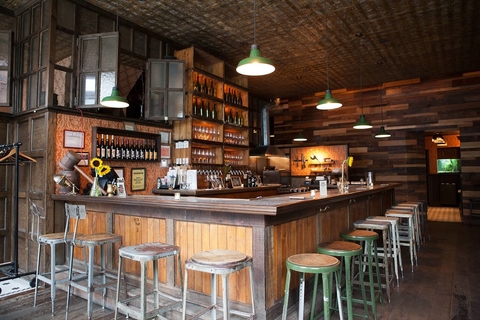
Brooklyn Winery, Brooklyn, New York
This boutique winery in Williamsburg was co-founded by Brian Leventhal and John Stires, who previously had worked together at an internet startup. Today, its portfolio of wines is made with grapes purchased from California and New York. After touring and tasting, settle into the 1,200-square-foot wine bar for a flight or bottle, along with beer, bar snacks, cheese and charcuterie platters, and shared plates like mushroom and ricotta toast, lamb sliders, and roasted cauliflower with burrata. A satellite location in Crown Heights called BKW by Brooklyn Winery offers wines, cocktails, beer, dinner and wine classes.
Tour/Taste: It costs $35 to tour the winery and enjoy a guided tasting of curated wines. Attendees get 10% off purchases made that day.
Wines to look for: 2014 Blanc de Blancs is a racy yet elegant traditional method sparkling wine made with Chardonnay grown in the Finger Lakes; 2015 Riesling is vinified in a German style, dry with zesty acidity and notes of pear and green apple; and 2014 Old Vine Zinfandel is savory and dense, with ripe and dried fruit, mocha, smoke and oak.
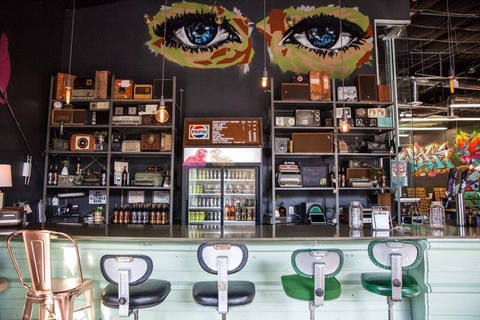
Infinite Monkey Theorem, Denver, Colorado, and Austin, Texas
A reference to the mathematical probability that a monkey randomly hitting keys on a typewriter for an infinite amount of time will eventually type out the complete works of Shakespeare, the name of this urban winery refers to the team’s believe that it seemed crazy and chaotic to start growing grapes in Colorado at an altitude of 4,500 feet and make wine in a warehouse in the city. Grapes are sourced mainly from Colorado’s Western Slope and the High Plains of Texas, and fermented at either the 15,000-square-foot winery in Denver or the 6,000-square-foot facility in Austin. Some of their offerings are even packaged in cans and kegs, with monkeys on the label, naturally.
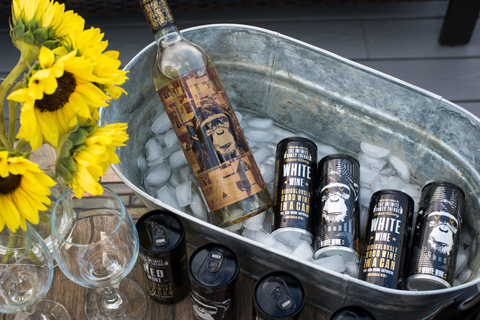
Tour/Taste: In Denver, book a $25 60-minute public tour that includes a sampling of 5 wines, or a 90-minute experience for $75 that features the above plus a private barrel tasting. In Austin, a weekend public tour for $25 gives you a peek at the winemaking process and a tasting of their favorite wines, while a private tour for $35 (per person) is perfect for groups of friends.
Wines to look for: Dry-Hopped Sauvignon Blanc is fun and funky, almost like a sour beer/wine mashup with notes of cantaloupe, passion fruit and lime; canned Rosé tastes of strawberries and raspberries with a touch of residual sugar; and bottled 2014 Cabernet Franc straddles the floral and savory with smoke, violet, plum and spice.
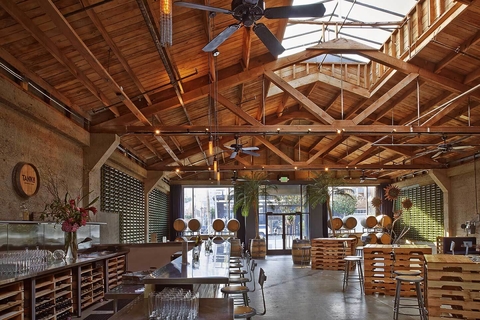
The idea for this winery in the city’s SOMA District arose when Silicon Valley techies decided to switch up their professional lives and focus on “wine, food and fun.” Most of the juice for their offerings is obtained locally when possible, including from Napa, Sonoma, Lodi and Santa Cruz, though they admit it could come from whatever region surprises them. A kitchen offers up daily happy hour bites like lomo embuchado with pickled Fresno chilies and Kikorangi six-week blue cheese. Their sustainable bottle program lets you bring back clean ones (or purchase empty ones) and have then refilled and corked at a discount.
READ THIS: Earth Day Inspiration: Five Brands Dedicated to Sustainability
Tour/Taste: Wine Flights cost $15 for a casual tasting of four wines accompanied by a cheese sampler plate.
Wines to look for: A peachy, vibrant 2013 Clarksburg Albariño; a cherry, earthy 2014 Anderson Valley Pinot Noir; and a structured 2013 Redwood Valley Carignane. (There is also a selection of cocktails and local beers.)
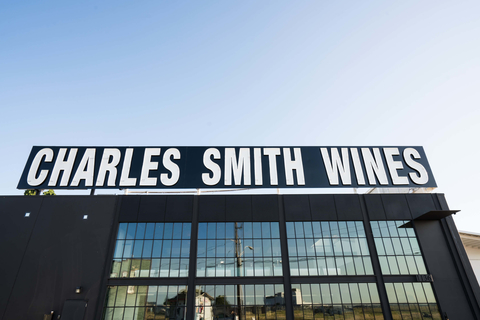
Housed in the city’s Georgetown neighborhood in a 32,000-square-foot facility that’s a former Dr. Pepper bottling plant, this winery is owned and operated by Charles Smith, a formidable presence in the Washington wine scene. Tour and sip while listening to music and catching views of the runways of Boeing Field amid the spectacular backdrop of Mount Rainier. Two tasting rooms emit very different vibes: the main floor is rustic Northwest, while upstairs is retro 1960s, complete with references to the city’s storied aviation history.
Tour/Taste: A $10 tasting lets you sample a handful of the approachably priced wines, while a $20 option gives you 8 pours of their spendier labels. Tasting fees are waived if you purchase at least two bottles of any of the wines included in your tasting.
Wines to look for: Kung Fu Girl Riesling, fresh and energetic with minerality, peach and mandarin orange; Velvet Devil Merlot, earthy with black fruit and soft tannins; and blueberry- and spice-scented Boom Boom Syrah, which truly expresses the region’s terroir.
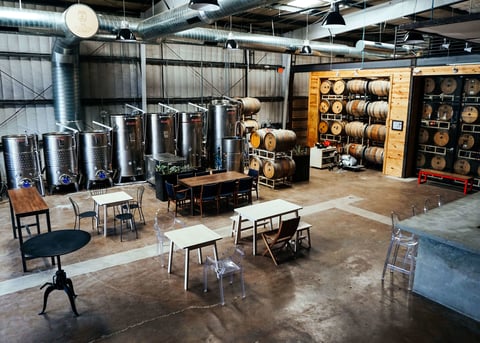
Designed to be super casual, approachable and snob-free, this facility founded in 2014 was the city’s first grape-to-glass winery. The team works with organically and biodynamically farmed vineyards in the Texas High Plains as well as Sonoma, Amador County and Walla Walla; fruit arrives on-stem and is processed and fermented in their onsite production area. A tasting room and event space can accommodate large and small events, and a focus on sustainability includes using locally made bottles, recycled cork, and alternative package like AstroPaq pouches and dispensable casks.
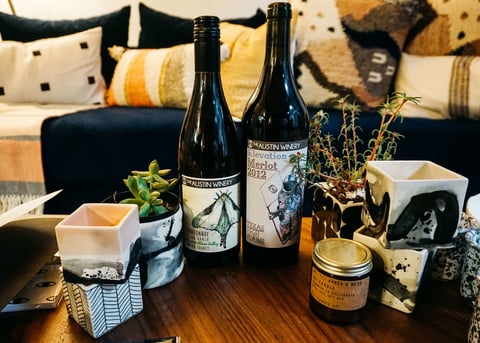
Tour/Taste: a 15-minute tour for $10 gives info on the winery’s history and methodology and how urban wineries work; $20 gets you a tasting of any four wines available by the glass; and $25 gives you both. A $50 Winemaking Tasting features a more immersive tour, and a sample of 6 offerings accompanied by light bites selected by the winemaking team.
Wines to look for: The 2016 Lone Cloud is a Cognac-like wine made with Chenin Blanc aged in barrel for 6 months and then fortified with Chenin Blanc-based brandy; 2015 Texas High Plains Rosé is made in a Provençal style with Merlot and Chenin Blanc and touts strawberries and a touch of sweetness; and 2017 Work Horse is their flagship red blend, a mélange of Merlot and Petit Verdot from high-altitude vineyards in the Texas High Plains which render juicy acidity, black pepper and strawberry, and velvety, fine tannins.
Kelly Magyarics, DWS, is a wine, spirits and lifestyle writer, and wine educator, in the Washington, D.C. area. She can be reached through her website, www.kellymagyarics.com or on Twitter and Instagram @kmagyarics.
